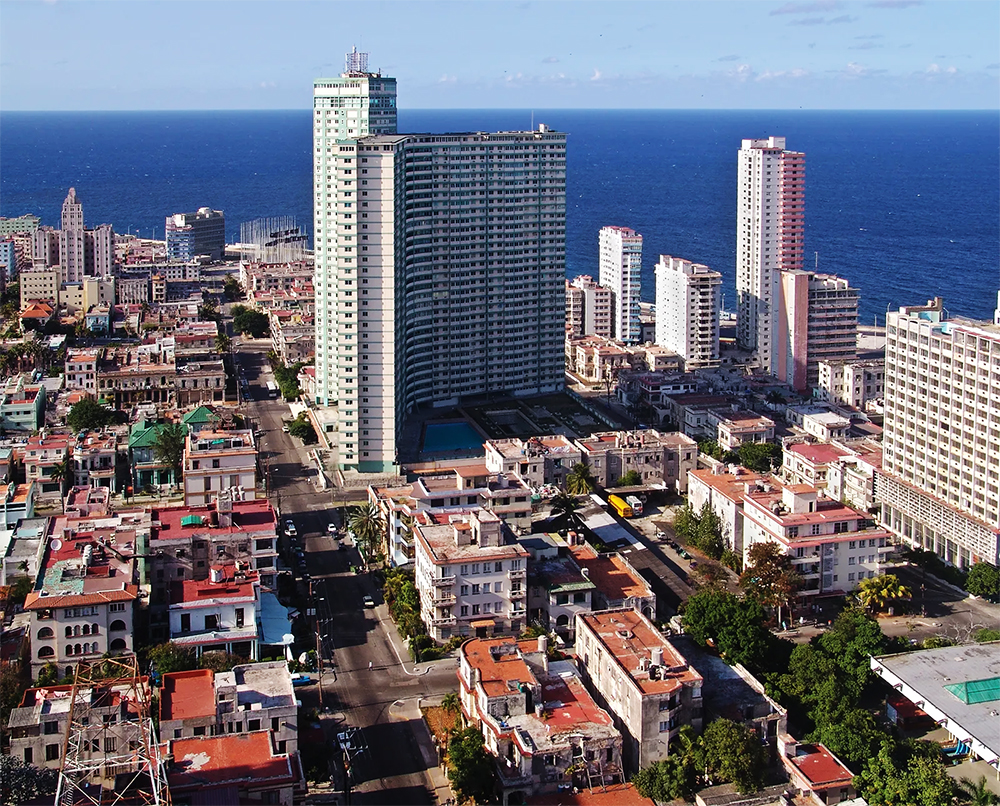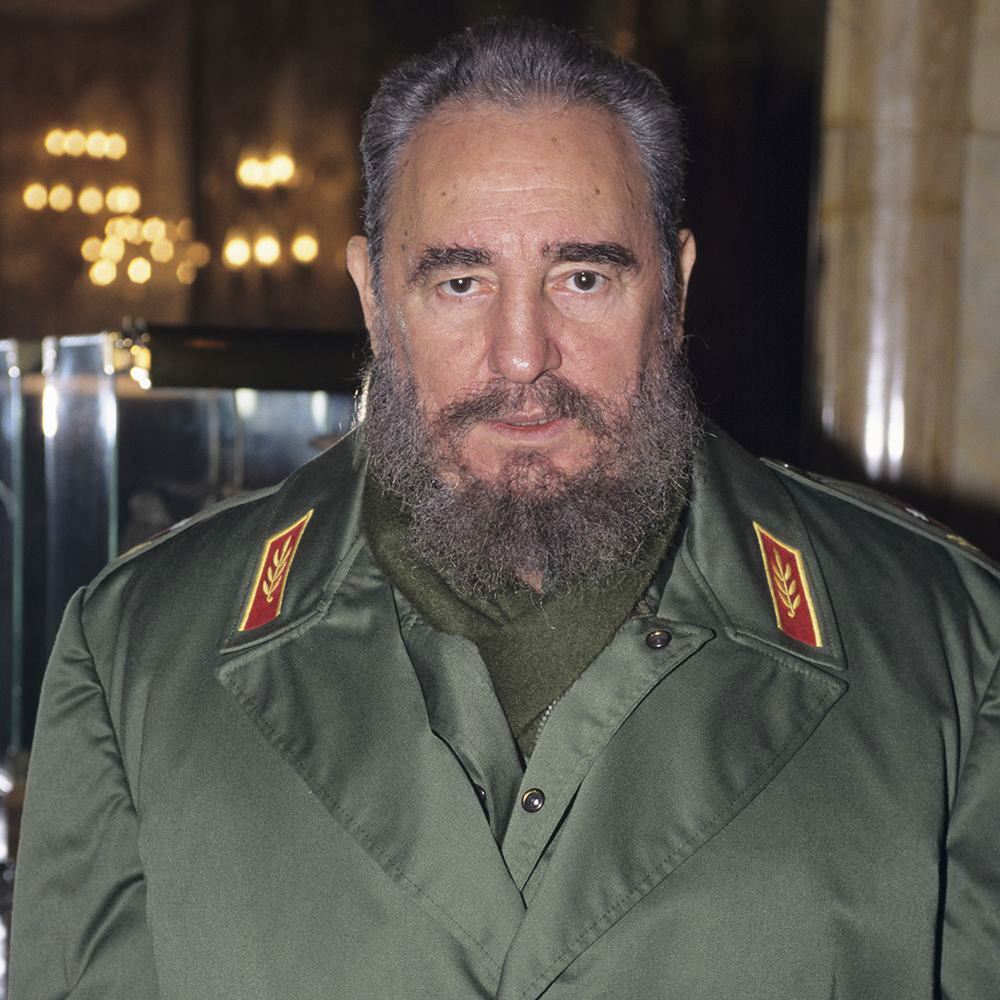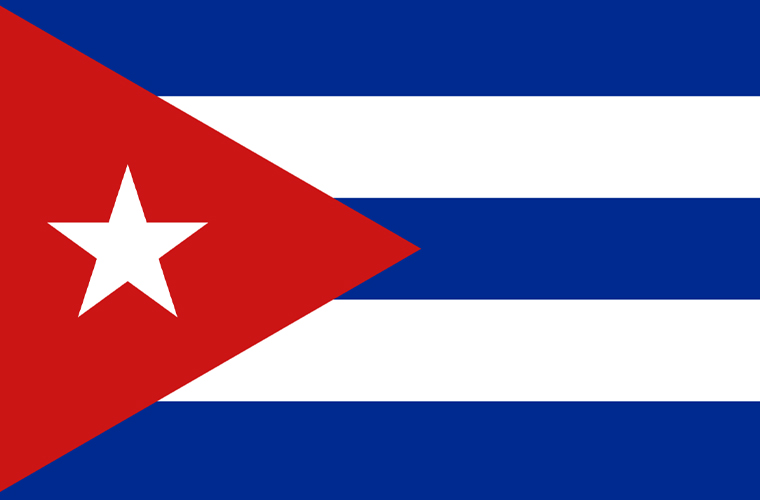Cuba is an island country located in the Caribbean Sea. It is the largest island in the Caribbean and is situated at the confluence of the Caribbean Sea, the Gulf of Mexico, and the Atlantic Ocean. Havana is the capital and largest city of Cuba.

Here are some key points about Cuba:
History: Cuba was inhabited by indigenous people for thousands of years before the arrival of Christopher Columbus in 1492. It became a Spanish colony and remained under Spanish rule until the Spanish-American War in 1898 when the United States gained control over Cuba. Cuba gained formal independence in 1902 but remained closely tied to the United States, particularly through economic and political influence.
Revolution: In 1959, Fidel Castro led a successful revolution against the U.S.-backed government, establishing a socialist state in Cuba. Castro’s government implemented a series of socialist policies and nationalized many industries, including sugar, tobacco, and foreign-owned properties. The revolution brought significant social and economic changes to Cuba and led to strained relations with the United States.
Cold War and U.S. embargo: During the Cold War, Cuba aligned itself with the Soviet Union, and the country became a focal point of tension between the United States and the Soviet Union. In 1961, the United States attempted to overthrow Castro’s government with the Bay of Pigs invasion, which failed. The tensions escalated further during the Cuban Missile Crisis in 1962 when the Soviet Union deployed nuclear missiles in Cuba, leading to a standoff with the United States. In response, the United States imposed a trade embargo on Cuba, which has lasted for decades.

Socialist system: Cuba operates under a socialist system with a planned economy. The state controls most major industries and provides free education and healthcare to its citizens. The government has implemented various social welfare programs, but the country faces economic challenges, including limited resources, inefficiency, and dependence on imports.
Cultural heritage: Cuba has a rich cultural heritage influenced by African, European, and Indigenous traditions. Cuban music, such as salsa, son, and rumba, is renowned worldwide. The country is also known for its vibrant art scene, literature, and distinct cuisine, including dishes like moros y cristianos (rice and black beans) and ropa vieja (shredded beef).
Tourism: Tourism plays a significant role in Cuba’s economy. The country attracts visitors with its beautiful beaches, historical sites, colonial architecture, and vibrant culture. Popular tourist destinations include Havana, Varadero, Trinidad, and Viñales.
It’s important to note that the information provided here is based on the knowledge available up until September 2021. Recent developments or changes in Cuba may not be reflected in this response.

